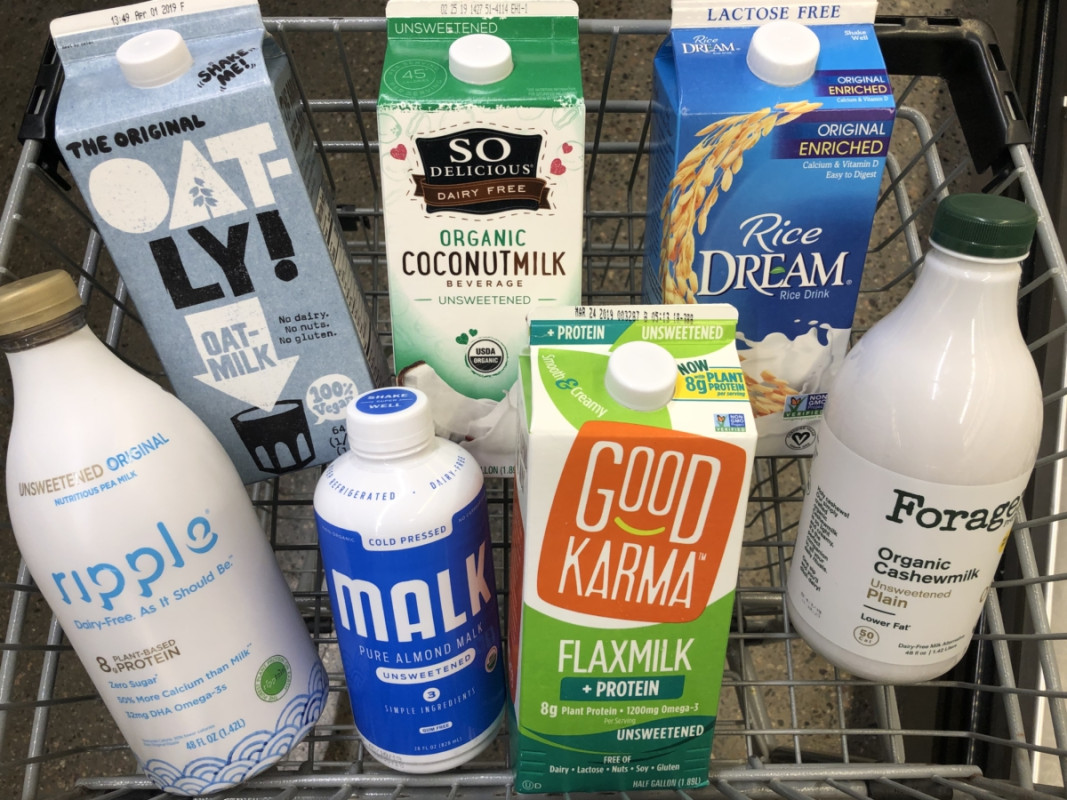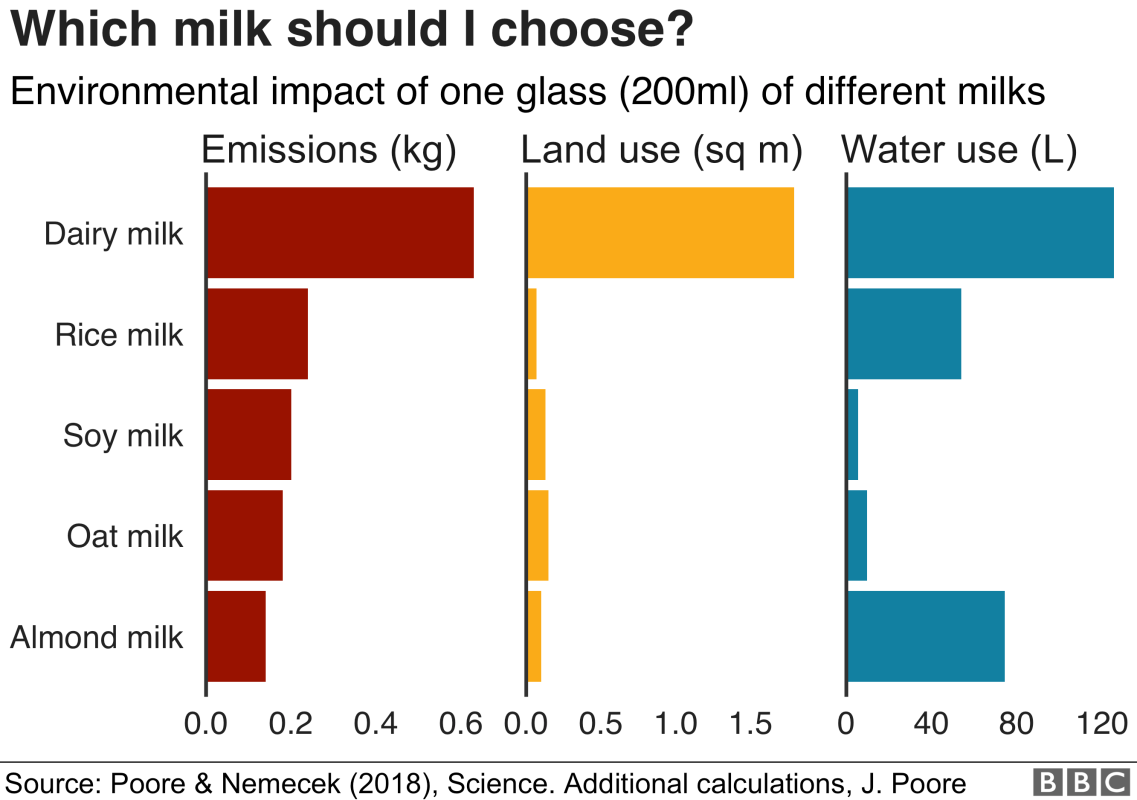 Drop by your favorite coffee shop and you can order an oat milk latte. At the supermarket, you might select a carton of soy, oat, and almond milk.
Drop by your favorite coffee shop and you can order an oat milk latte. At the supermarket, you might select a carton of soy, oat, and almond milk.
Plant-based milks have quickly become a fixture in our daily lives.
However, dairy milk producers have long objected to the use of the word “milk” to describe these beverages. This has sparked an industry-wide debate. What drinks can be called milk?
Let’s take a closer look at what plant-based “milks” are, and at the new guidance the US Food and Drug Administration (FDA) is offering.
Defining Plant-Based Milks
Plant-based milks are beverages made with liquid extracts of plant materials such as legumes, nuts, seeds, grains, and fruit.
Such beverages are not new. Soy milk, for instance, has been a staple in Asian countries for centuries. Plant-based milks have also been an option for lactose-intolerant people unable to drink dairy milk.
But in recent years, plant-based milks have soared in popularity. Besides looking for healthy options, consumers have become more conscious of their diets’ impacts on both animals and the environment. Many have chosen to adopt vegan diets, which eliminate the consumption of animal-derived products.
Besides your typical soy, oat, and almond, you can count on rice, cashew, hemp, coconut, and quinoa-based milks!
An Almond Doesn’t Lactate!
 As plant-based milks have become a booming industry, dairy producers have accused their competitors of misleading consumers. According to the dairy industry, dairy milk is more nutritious than plant-based beverages. Because of this, they cannot be called “milks,” as this implies that they are derived in the same way as dairy milk.
As plant-based milks have become a booming industry, dairy producers have accused their competitors of misleading consumers. According to the dairy industry, dairy milk is more nutritious than plant-based beverages. Because of this, they cannot be called “milks,” as this implies that they are derived in the same way as dairy milk.
In 2019, the FDA considered making “milk” an exclusive term for dairy products. FDA commissioner Scott Gottlieb explained, “An almond doesn’t lactate.” Though hailed by the dairy industry, public reception of this proposal was mixed.
But would the renaming of almond milk as “almond juice” only introduce more confusion? To answer this question, the FDA has revised its previous stance. Plant-based products can continue to market themselves as milks, as long as they clarify how they compare with dairy milk.
The Debate
Dairy representatives such as The National Milk Producers Federation have already criticized the proposed guidance. In their view, milk is a “common and usual name” that cannot be used to describe plant-based alternatives.
In turn, proponents of plant-based alternatives argue that “milk” has become a flexible term no longer strictly associated with a cow’s udders. After all, consumers can distinguish peanut butter from butter but understand that both can be spread on bread. Similarly, plant-based alternatives are used just like dairy milk – in one’s morning coffee, in baking, and in other delicious recipes.
Furthermore, using dairy milk as a standard implies it is inherently better than plant-based alternatives, which have their own nutritional benefits. In some cases, plant-based milks can be even better than dairy milk. For example, almond milk is a good source of calcium and vitamin E, but contains less saturated fat than dairy milk.
What do you think? Can plant-based alternatives be called milk? Or is it just an example of how language is more flexible than trademarked marketing? The FDA is welcoming comments on the guidance.
In the meanwhile, why not enjoy a glass of plant-based beverage?
Sources: NY Times, NOR, CNN, Atlantic, WebMD, The Conversation







